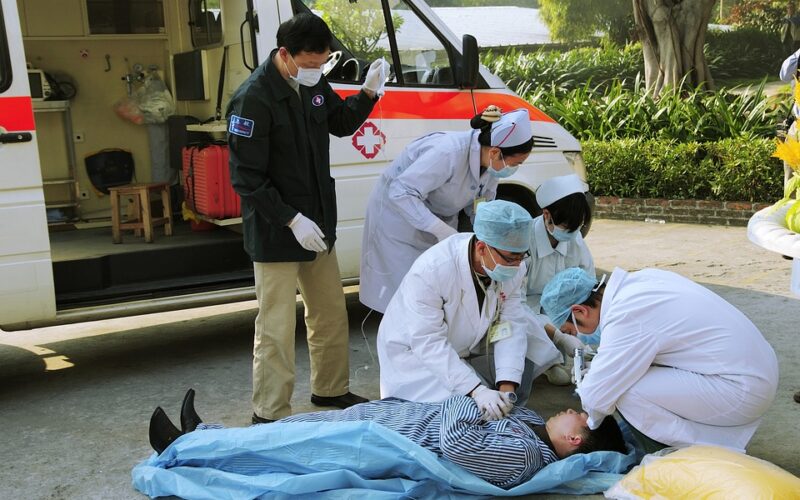Changes After Trauma
Experiencing trauma can leave a profound impact on an individual’s mental, emotional, and behavioural state. Whether it results from a sudden accident, abuse, the loss of a loved one, or other life-changing events, trauma can manifest in many different ways. Importantly, recognising the behavioural changes that often accompany trauma is the first step towards addressing its effects and finding healthier ways to cope.
Common behavioural changes after trauma
Trauma isn’t a one-size-fits-all experience, and its effects vary from person to person. However, certain behavioural changes are relatively common among those who have been through traumatic events. These may include heightened irritability, avoidance behaviours, or a withdrawal from social situations. Some individuals might display increased restlessness, become overly cautious, or exhibit harmful habits such as substance abuse or binge eating.
Sleep disturbances are another frequent issue, with many people experiencing insomnia or having vivid, intrusive nightmares about their trauma. Additionally, victims of trauma might find themselves struggling to concentrate or experiencing a persistent sense of hopelessness. These changes can significantly affect day-to-day life and relationships, making early intervention and understanding critical.
Why behavioural changes occur
The behavioural changes that follow trauma are often tied to the body’s natural stress response. When faced with a threat, the brain activates its "fight or flight" mode, releasing stress hormones that help the individual respond to danger. However, in cases of trauma, this system might remain overly active even after the threat has passed, leading to a prolonged state of arousal and hyper-vigilance.
The brain regions responsible for processing trauma, such as the amygdala and hippocampus, may also struggle to properly manage memories of the event. This can result in flashbacks or triggers, where seemingly unrelated stimuli evoke the emotions or sensations associated with the trauma. Consequently, the individual’s behavioural changes are their mind’s way of attempting to avoid perceived threats or emotional pain.
Effective coping mechanisms
Coping with trauma often requires a combination of strategies tailored to the individual. Talking to a trusted friend or seeking professional support from a therapist can be invaluable in processing what happened and identifying healthy ways to move forward. Structured approaches like cognitive behavioural therapy (CBT) or eye movement desensitisation and reprocessing (EMDR) are particularly effective in working through trauma and reprogramming negative thought patterns.
Additionally, mindfulness practices such as deep breathing, meditation, or yoga can help to calm the nervous system and reduce ongoing stress. These activities introduce a sense of safety and presence, encouraging the body to exit the heightened state of alert induced by trauma.
Developing a support system
Isolation can exacerbate the symptoms of trauma, which is why creating a strong support system is so important. Trusted relationships with friends, family, or community groups can provide both emotional reassurance and practical help during recovery. Open communication can help others understand what the traumatised individual is going through and how to best support them.
Joining support groups for trauma survivors is another excellent option. These groups create a space where individuals can share their experiences without fear of judgement and gain insight from those who have navigated similar challenges. The knowledge that one is not alone in their struggles can bring immense relief and hope.
Prioritising self-care
Taking care of oneself might seem challenging in the aftermath of trauma, but it is essential for recovery. Simple self-care routines—like maintaining a regular sleep schedule, eating balanced meals, and engaging in light exercise—can have a substantial positive impact. Activities that provide a creative outlet, such as art, writing, or music, can also help individuals express themselves and process their emotions.
Limiting exposure to negative triggers, such as news stories that resemble the trauma, and setting healthy boundaries in relationships are equally critical aspects of self-care. By focusing on these small but meaningful actions, individuals can regain some control over their lives.
When to seek professional help
While many individuals gradually heal over time, some may find that trauma continues to impact their lives months or even years later. If symptoms such as flashbacks, severe anxiety, or depression persist, it may be time to seek professional therapy. Additionally, when behavioural changes put the individual’s safety at risk—such as self-harm or substance dependency—intervention becomes urgent.
Trauma may reshape one’s world, but with understanding, support, and the right tools, individuals can find a path towards resilience and recovery. Taking the first step, however small, is often the most crucial move towards healing. Recognising the changes within oneself and seeking help when needed is not just a sign of strength, but a gateway to a better and brighter future.






















